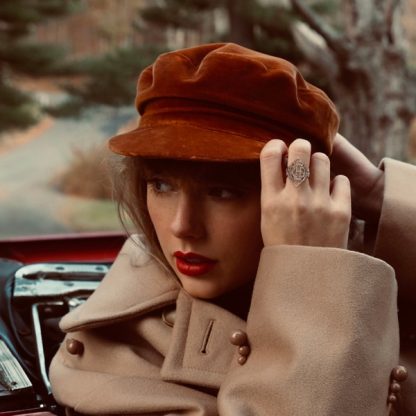
As part of a new compilation album of 30 songs, Taylor Swift released her own version of her past album “Red” on Nov. 12. She did so to reclaim ownership of master recordings that were sold off by her former music industry manager, Scooter Braun.
Scooter Braun managed stars like Kanye West and Justin Bieber, along with Swift. In 2019, Braun bought Big Machine Records and by extension, Swift’s master recordings. Swift couldn’t get the rights to her music unless she signed a new contract with Big Machine Records, getting one record back for every new album she created. Swift’s fight to own her master recordings is one of many examples in the music industry where record labels have exploited the original work of artists.
In addition to Swift exposing the pattern of injustice, the ‘90s girl group TLC earned less than 1% of their $175 million revenue earnings and had to file for bankruptcy despite the success of their album, “Crazysexycool.” Arista Records and LaFace Records laid claim to the rest of these profits, showcasing how record labels take advantage of naïve young artists.
“No matter how many records we sell or awards we win, they just treat us like dirt,” Tionne Watkins, TLC member said in an interview with the Los Angeles Times. Other successful artists, where record labels have treated them as nothing more than cash cows, shared similar experiences.
Singer JoJo, for example, had assurances from her lawyer that her record deal with Blackground Records was “normal” and that she would be protected. As an up-and-coming artist, she should have been able to focus on her music and passions. Instead, she was stopped from releasing one of her albums and stuck in a 7-year contract she couldn’t leave.
Kelly Clarkson was also mistreated by her record label RCA. Her manager tried to bury one of her albums, “My December.” She was told by a room full of executives that “Because of You” was a “s***ty song because it didn’t rhyme.” Despite being bullied and disrespected, she was told that she should simply “shut up and sing.” This highlights a disturbing pattern to that of Jojo and other artists; Artists are lured in by the promise of a shiny record label, only to be mistreated, controlled and trapped.
“..the bigger you get, the more hands want to pick your pockets,” Lisa Lopes, TLC member, said in the interview with Los Angeles Times. “We know our producers helped us create these records, but we’re tired of watching everybody cash in on our success but us.” The unfortunate reality of greed in the music industry is shown by record label producers who mistreat and exploit the success of artists who can’t defend themselves.
Current copyright law allows record labels to maintain records for 35 years. Even if an artist buys back their records, it is usually for an obscene amount. Popular artists, such as Iggy Azalea, do not own all of their original songs.
Artists, not record labels, are the original creators of songs. They spend countless hours writing and creating music that results from their own unique experiences and emotions. Without their perspective, the songs would not exist. Therefore, they should and control how their songs are used and profit from them. However, record labels usually benefit more; they exploit their control over an artist’s master recordings to disproportionately profit and control music that isn’t theirs.
Until copyright law for master recordings becomes stricter and the music industry changes, this will continue. This issue, unfortunately, affects artists at all levels. For small artists that need record labels for recognition, they are likely signing away profits and control on their own creations without realizing its future consequences.
Luckily, Taylor Swift’s re-recordings bring more light to the issue. The more artists are aware of the potential pitfalls of record label contracts, the less likely they are to fall for exploitation. Some of these consequences include a long rights period, exclusive recording rights, and the opportunity for record labels to buy rights to future recordings.
Copyright laws for master recordings, even after the 35-year limit, are still a grey area. Major recording companies like Sony Music and Universal Music are the subjects of lawsuits where they have argued that artists are “work for hire,” making them “employees” and therefore unable to have copyright over their own music.
Given this, music industry laws need to adapt in order to protect artists. There should be a maximum length of record contracts and rights associated with them. There should also be additional laws that guarantee favorable conditions for artists, such as a minimum on their percent ownership and an ability to break contracts when they are no longer suitable. To prevent these issues from being buried and putting pressure on music moguls, it is crucial to have more vocal conversations on social media and amongst fans.
Overall, Taylor Swift’s re-recordings are just one of many examples of record labels exploiting artists. Record labels too often take advantage of their control over artists’ master recordings and maximize profit at the expense of artists who create original work. To prevent further mistreatment of artists, it is crucial that we continue to increase the visibility of problems in the music industry.
















